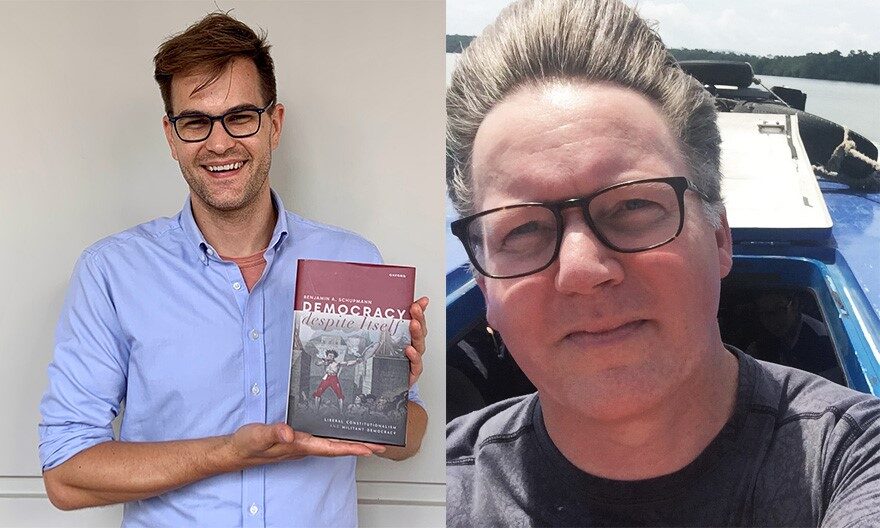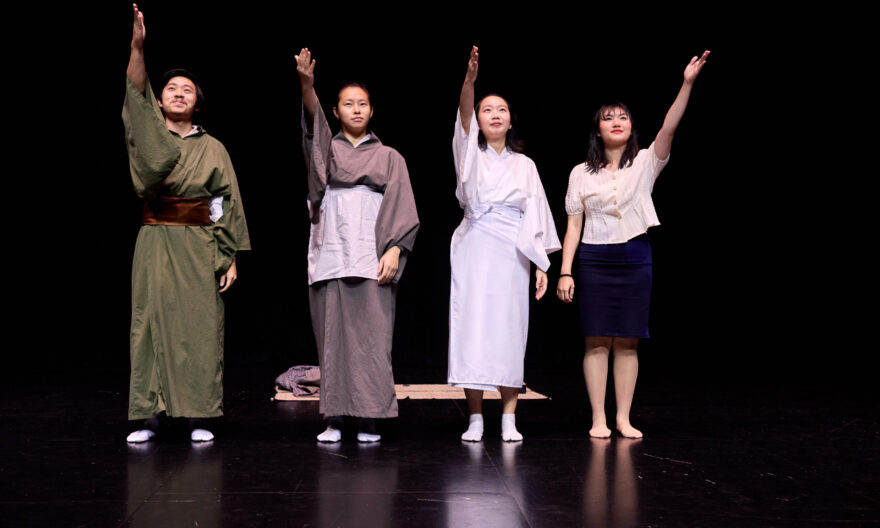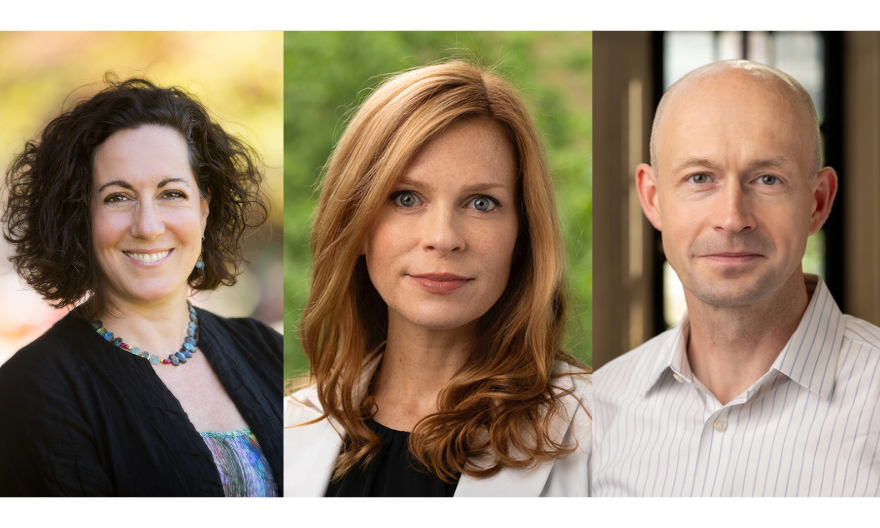Students’ Special Projects in Science modules yield published papers with faculty members
When Wen Kin Lim (Class of 2020) approached Assistant Professor of Science (Life Sciences) Ajay S Mathuru with his independent science research project proposal, he was not really expecting the semester-long module to culminate in a published paper.
Wen is a Life Sciences major and Mathematical, Computational and Statistical Sciences (MCS) minor in his senior year, but even before graduating, he would have a published paper attributed to his name. Co-authored with Asst Prof Mathuru, the review paper titled “Design, challenges, and the potential of transcriptomics to understand social behaviour” was published in Current Zoology. Their paper focuses on RNA sequencing technology (or RNA-seq), a rapidly-evolving field of research which Asst Prof Mathuru describes as “revolutionary”.
Asst Prof Mathuru explains, “There is almost no field of study in biology and medicine that has been untouched by RNA-seq now.”
In particular, since social behaviours are largely affected in part by genetics, RNA-seq opens up many new opportunities. Their review paper contributes to contemporary discourse by summarising how this technology is currently being employed by behavioural scientists, the challenges they face in applying it, and providing recommendations on how to overcome such challenges.
Though Yale-NUS students have co-authored papers with faculty members in the past, what is especially notable is that this originated from a student-initiated independent research course.
In Yale-NUS College, students have ample opportunities to pursue academic interests beyond the offered curriculum via specialised independent study modules, where they work with an attached faculty member to design a semester-long module. These include the Independent Reading and Research (IRR), Independent Language Study and Research (ILSR), and Special Project in Science (SPS) modules.
The goal of a SPS, is not publishing a paper, but sometimes the opportunity does arise quite organically.
 Goh Rui Zhe (Class of 2020) and Assistant Professor of Social Sciences (Psychology) Christopher Asplund. Image by Ashbel Chioh.
Goh Rui Zhe (Class of 2020) and Assistant Professor of Social Sciences (Psychology) Christopher Asplund. Image by Ashbel Chioh.
Another recent example of faculty-student research collaborations is a paper titled “Overlapping attentional networks yield divergent behavioral predictions across tasks: Neuromarkers for diffuse and focused attention?”.
Published on 1 April in NeuroImage, this paper was based on research by Assistant Professor of Social Sciences (Psychology) Christopher Asplund who worked with fellow researchers, including Yale-NUS student Goh Rui Zhe (Class of 2020). The study seeks to use patterns of brain activity measured by fMRI (functional magnetic resonance imaging) to predict performance on different attention tasks.
When Rui Zhe approached Asst Prof Asplund in 2018 to explore the field of computational neuroscience, Asst Prof Asplund extended the invitation to contribute to his ongoing research project. Titled “Connectome-based Predictive Modeling of Attentional Tasks”, Rui Zhe’s SPS further developed their research models and applied them to predict performance on different attention tasks.
For both Wen and Rui Zhe, their SPS modules not only allowed them to deepen their understanding of their respective fields of interest under the guidance of faculty members, but also helped sow the seeds for future endeavours.
In Wen’s case, he had long expressed a keen interest in the fields of genetics, genomics and RNA sequencing. He explained, “[This is] because of its major potential to answer big questions about life on earth, with also downstream applications like helping develop cures for human diseases by identifying therapeutic targets and bolstering our understanding of all living organisms in the world around us.”
Prior to his SPS, Wen had done a smaller independent study with Asst Prof Mathuru which piqued his interest in genetics and biology. They then began working together in Semester 1, Academic Year 2018 to develop an SPS module.
Wen shared, “Writing the review paper with Asst Prof Mathuru helped me to improve my synthesis skills of key research and keep a view of the ‘big picture’ of the work.” In addition to that, he was able to apply his knowledge of RNA-seq technology directly in his capstone project.
On the other hand, as a Philosophy major, Rui Zhe’s involvement in psychology research may seem surprising at first glance. However, he explained that his SPS allowed him to explore his interest in interdisciplinary studies.
“I’ve always been interested in a range of different disciplines –– computer science, cognitive psychology, philosophy –– which made it quite difficult to narrow things down to just one major. The SPS in computational neuroscience was a really enriching experience, because it allowed me to explore the intersection between computer science and cognitive psychology.”
Continuing this trajectory, Rui Zhe has been offered a place at Johns Hopkins University to do an interdisciplinary PhD in Psychology and Philosophy, uniquely marrying his twin academic interests.
With graduation impending, both seniors expressed an appreciation for the opportunities accorded to them throughout their Yale-NUS experience. “The leading professors and faculty at Yale-NUS certainly provide close guidance and mentorship which ensure that our students have many opportunities to learn,” Wen reflected.





